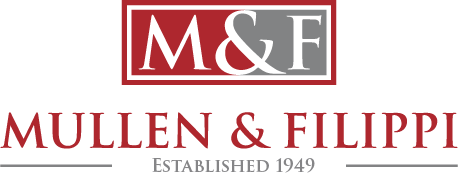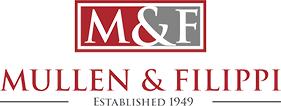A Haiku for the poetry of worker’s compensation, and the two sides of the COVID-19 presumptions:
2020’s ruse
COVID-19 hangover
Presumption guarded
As we approach two and one-half years into the COVID-19 pandemic, the worst may just be on the horizon. Case law is emerging from COVID-19 providing guidance as we navigate this storm. Recently, the WCAB issued opinions and guidance in two critical areas: (1) the COVID-19 presumption with Applicant’s burden of proof and (2) Defendant’s burden in rebutting the presumption.
COVID-19 PRESUMPTION IS APPLICANT’S BURDEN OF PROOF AND REQUIRES SUBSTANTIAL MEDICAL EVIDENCE
Jackson v. County of Los Angeles (8/23/2022) ADJ13319190, is one of the first WCAB Panel Decisions on COVID-19 presumption of industrial causation. At trial, the WCJ found that Applicant, while employed as a probation officer on 3/11/2020, sustained industrial injury in the form of COVID-19. The judge found in Applicant’s favor based on presumption of industrial causation in Labor Code § 3212.86, as well as an opinion of an internal medicine Qualified Medical Evaluator (QME). The doctor opined that “it was more likely than not” Applicant’s COVID-19 was industrial because she “was around hundreds of people on a daily basis in a large office” and Applicant “did not recall any sick contacts or potential personal sources of exposure.”
Defendant filed a Petition for Reconsideration, asserting that the presumption under Labor Code § 3212.86 did not apply to the case, and that the QME report was not substantial medical evidence due to an incomplete history. The WCAB agreed with Defendant, granted Reconsideration, and returned the matter to the trial level for further development of the record.
In their Opinion on Decision, the WCAB found that under Labor Code § 3212.86(b)(2) the presumption only covered cases of COVID-19 for employees who worked in-person from 3/19/2020 to 7/5/2020 and was not, therefore, applicable to applicant’s 3/11/2020 date of injury. Critically, 3/11/2020 was also Applicant’s last date worked. Accordingly, her date of injury was specifically precluded from the presumption under Labor Code § 3212.86.
The WCAB also reminded the parties that Applicant bears the burden of establishing the “reasonable probability of industrial causation.” In Jackson, the WCAB found that the QME’s opinion was not substantial evidence on the issue of industrial causation because the QME was not provided with a specific and detailed history, including Applicant’s working conditions, frequency and duration of her contacts with the public and with her coworkers, and the fact that none of Applicant’s co-workers were diagnosed with COVID-19 during any relevant period in February, March, or April of 2020.
DEFENDANT BEARS THE BURDEN OF REBUTTING THE COVID-19 PRESUMPTION WITH SUBSTANTIAL MEDICAL EVIDENCE
While the Jackson case was a small victory for Defendants, another recent WCAB Panel Decision, Sevillano v. State of California, IHSS, (9/23/2022) ADJ1351723, found that the defendant did not rebut the COVID-19 presumption per Labor Code § 3212.86, but provided substantial guidance on the evidence required to rebut the presumption.
In Sevillano, the applicant, on 06/26/2020, was a home healthcare worker who alleged an industrial injury in the form of COVID-19 which required a hospitalization. Applicant asserted the presumption under Labor Code § 3212.86 applied, and that Defendant did not meet the burden to rebut the presumption.
At trial, the WCJ found that while Applicant qualified for the presumption under Labor Code § 3212.86, Defendant successfully rebutted the presumption and ordered Applicant take nothing by way of her claim. Specifically, the WCJ relied on the fact that Applicant apparently reported that her roommates “were also COVID positive.”
Applicant filed a Petition for Reconsideration, which was granted. Therein, the WCAB rescinded the Findings and Order, substituting a new Findings & Award, holding as follows: (1) that Applicant qualified for the presumption for COVID-19-related illness in Labor Code § 3212.86; (2) that Defendant had not met its burden to rebut the presumption of Labor Code § 3212.86; and (3) that Applicant sustained an injury to her lungs from pneumonia from COVID-19.
In their discussion, the WCAB agreed the presumption of Labor Code § 3212.86 applied, given Applicant’s positive test and based on last date worked of 6/26/2020. The Board was not persuaded that Defendant had met the burden in rebutting the presumption.
The WCAB highlighted Defendant offered no substantial evidence that Applicant was infected with the COVID-19 virus elsewhere, that no treatment reports or medical-legal reporting ascribing Applicant’s illness to non-industrial factors was provided, nor that any witness testimony addressing collateral sources of COVID-19 exposure was given. Other than Applicant’s alleged self-reporting that “her roommates were also positive,” there was no documentary, testimonial, or any corroborating evidence regarding whether Applicant’s employer or her roommates were, in fact, COVID-19 positive.
In this case, contrary to Jackson, defendant had no evidence that Applicant contracted COVID-19 on a non-industrial basis. While there was a “passing reference in chart notes” that Applicant’s roommates were also COVID-19 positive, there was no corroborating evidence in this regard. In hindsight, Defendant should have deposed the roommates or at least obtained evidence of their positive test and date(s) of their positive test. Defendant should have obtained a complete and detailed history of Applicant’s known positive COVID-19 contacts at her deposition, as well.
SUMMARY
In summary, COVID-19 caselaw continues to emerge on critical topics though society is starting to return to normalcy. From a defense perspective, it is critical to hold Applicant to his or her burden on industrial causation and whether a presumption applies. If a presumption applies, Defendant must obtain clear and compelling documentary, testimonial, or corroborating evidence that Applicant contracted COVID-19 outside the workplace. In turn, this evidence and detailed timeline must be provided to the QME for an opinion based on substantial medical evidence.
By Brock L. Roverud, Managing Associate Attorney; Ashley Mohammadi, Associate Attorney; and, Treanna Garza, Associate Attorney, Fresno Office, October 2022 with commencing Haiku by Kenneth W. Scott, Associate Partner, Bakersfield Office.



